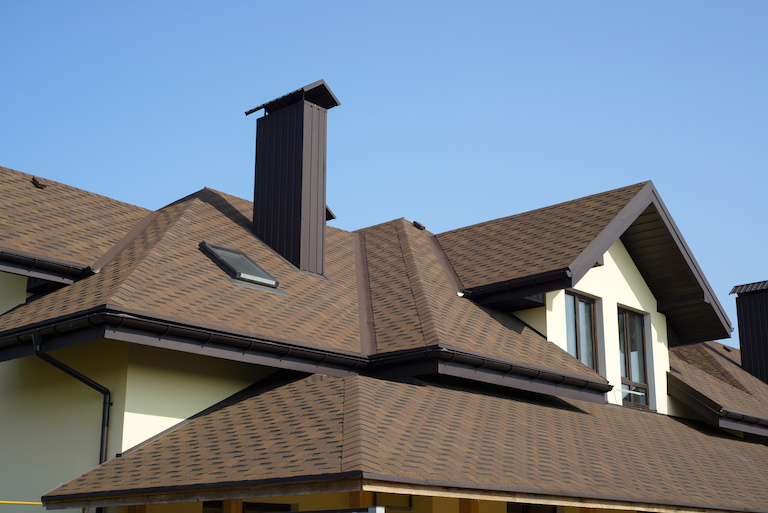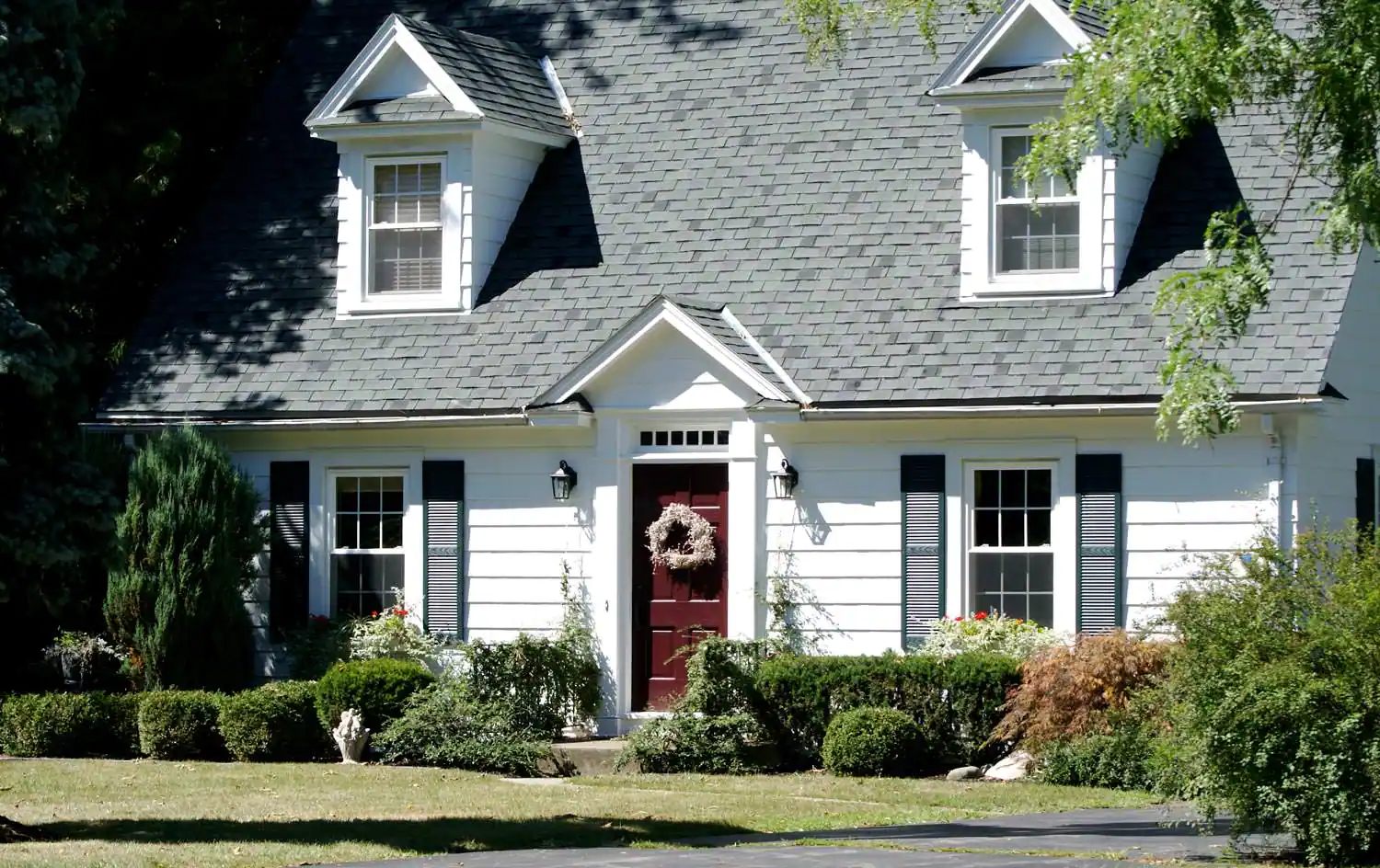How Do I Hire the Best Roofing Contractor?
Don’t get scammed or bamboozled—here’s how to find and hire a competent roofing contractor


There’s no reason to sugarcoat it—hiring a roofing contractor is kind of a high-stakes game. Your roof is an integral part of keeping your home dry, warm, or cool, which means you need the job, whether it’s repairs or a new roof installation, done right without exceptions.
Fortunately, by asking the right questions and doing diligent research before entering into a contract, you can avoid many of the pitfalls or roofing scams others have been unfortunate to run into.
Here’s a checklist you can follow to help you hire a competent roofing professional.
How to Find a Roofing Contractor
Two simple ways to find a local roof contractor include getting a referral and searching online—which is basically the modern-day form of checking the Yellow Pages. Here are some helpful ways to find a reputable roofer for your home project:
Talk to Your Friends, Family, and Neighbors
There's nothing like word of mouth to build a contractor's reputation. One of the best ways to find a skilled roofer is to get a referral from people you know who have had similar work done. If you’ve noticed neighbors have had roof work done, give them a call and ask if they’d recommend the contractor. You can also put out a call on social media to see if your network has any roofer referrals.
Search Online
You can easily find local roofers by searching online or using a home services company (like Angi!) to see what other customers say. You can also compare quotes online and research how long a company has been in business, and where its operations are based.
Roofing contractors may do a variety of jobs or specialize in areas such as:
Roof inspections and repairs (leaks, structural damage)
New roof installation and roof anatomy
Debris removal
Installing ventilation
You might also find roof contractors that install specific types of roofs based on material (such as metal) or style (such as rolled).
Before Hiring a Roofing Contractor
Before deciding on who to hire, you should speak to multiple roofing contractors.
“Contractors insurance and roofing insurance are not the same,” says Michael DiMartino, senior vice president of installations at Power Home Remodeling. “Because roofing is a high-risk occupation, it comes with steeper premiums. Double-check that the roofer you decide to go with has proof of necessary insurance or certifications and enough coverage should you run into problems.”
Be sure to ask questions about:
How long they’ve been in the business
Their areas of specialty or expertise
Their pricing model (if applicable)
The type of warranties they offer and their brand affiliations
References you can call and how they resolve complaints
Time-sensitive issues, especially if your roof is showing warning signs or the project is a roofing emergency.
For new roof installations, it also can’t hurt to go for a walk around the neighborhood or do research online to see which styles of roof you might want to install. Basically, you want to know the real cost of your roof before you sign any paperwork.
Plan Your Roofing Contractor Project for Accurate Quotes

You should start planning your roofing project with a vague idea of what you hope to get done. Since you’re not an expert, a roofer won’t expect you to know exactly what type of work will need to be performed—but being able to explain your concerns is a good starting point.
Next, you’ll want to collect at least three quotes from roofing contractors. That way, you can compare estimates and determine what works best for your budget. Keep in mind that the lowest bid isn’t necessarily the best. It’s a good idea to have a general idea of how much the type of roofing work you need costs in your local area. A roofing contractor will need to come to the house to give you a quote—don’t agree to an estimate over the phone, sight unseen.
Once you decide on a roofer, you should have a face-to-face conversation to ask about a timeline of work and payment, and also get in writing all the work they plan to do.
If a roofing contractor gives you vague or open-ended answers, especially about timeline or pricing, move on. A professional that’s done a similar job before should be able to provide you with a fairly accurate quote—as well as any contingencies that could increase the price.
If you’re not in a hurry, the best time to hire a roofing contractor when you’re on a budget is during the offseason (later summer through fall).
Check Your Roofing Contractor’s Qualifications and References
Some states—like Texas—don’t require roofing contractors to be licensed. But when possible, it’s best to hire a licensed and insured roofing contractor. Licenses and insurance protect you in case someone is injured while working on your home. While most residential contractors generally are not bonded, if you find one that is, you may be able to recoup some money if something with the project goes awry.
Your home’s roof is an essential structure that keeps your house cool and protects it from inclement weather. Therefore, hiring someone you trust, even if it’s just for a roof inspection, is essential.
“Homeowners in states where roofing contractors don't have to be licensed should be extra cautious, as anyone with a hammer and a truck can claim they are a roofing professional,” says Ami Feller, Expert Review Board member and owner of Roofer Chicks in New Braunfels, Texas.
Hiring Your Roofing Contractor
When you’re ready to hire a roofing contractor, let them know. At this point, they should offer to draw up a contract, which you should review carefully before signing.
Be sure that the following information is in writing:
The initial quote (double-check on the phone when you hire them)
The agreed-upon payment plan or structure
Proof of insurance (including liability and workman’s compensation), licenses, and bonds (if applicable)
Once you both sign, put this contract someplace safe. You may need to reference it again as the project progresses.
Keep Records of Your Roofing Contractor Project
The work isn’t over once the contract is signed and a payment plan is in motion. It’s still important to document progress and hang onto receipts.
Along with your contract, you should keep detailed records of:
Dates by which certain milestones are completed
Bills/receipts for materials
Additional costs or revisions to the contract (which means drawing up and signing a new document)
Taking progress pictures is also a good idea, especially if the original timeline for building or repairs gets pushed back.
Know Your Rights and Avoid Roofing Contractor Scams
As a homeowner, you have rights once you enter into a contract with a roofing contractor.
Depending on the language of your signed contract, you may be able to back out of an agreement if a roofing contractor fails to meet deadlines or does shoddy work. Of course, voiding a contract or not paying could lead you to arbitration or small-claims court if things go south—but that’s why a detailed contract is so important.
Common Roofing Scams
Roofing scams, such as low starting bids or undocumented damage that gets added to the price after work starts should immediately be addressed.
Storm chasers are also a common ruse. These people go door-to-door and attempt to convince people to contact insurance to repair large quantities of low-quality roofs after storms all at once.
Pro tip: Storm chasers often ask people for their first insurance check as down payment, and then disappear. They especially tend to prey on the older population.
After Your Roofing Contractor Has Finished
Assuming the roofing contractor does a good job and finishes in a timely fashion, the only thing left to do is pay them for their work. If you financed your roof, you may still owe payments for the next couple of months or years.
Did they do a good job? Be sure to leave them a review online. As you now know, the process of installing or repairing your roof is one you want done right the first time. Help someone else find and hire a competent roofing pro like you did.





- Roofers
- Metal Roofing
- Roof Repair
- Roof Inspection
- Vinyl Siding Repair Contractors
- Flat Roofing Companies
- Commercial Roofing
- Emergency Roofing Companies
- Leaky Roof Repair
- Metal Roof Repair
- Business Roof Repair
- Flat Roof Repair
- Tile Roof Repair
- Slate Roofers
- Rubber Roofers
- Roofing & Siding
- Metal Roof Installation
- Affordable Roofing
- Roof Sealing
- Attic Ventilation Contractors
- 12 Most Common Roofing Scams and How to Avoid Them
- What to Look for in a Roofing Estimate
- Who Fixes Roofs? Learn Who to Hire for Roof Repairs
- How to Become a Roofing Contractor: Everything You Need to Know
- How to Hire a Roofer: 10 Tips to Choose a Reputable Contractor
- How Binding Are Roofing Contracts?
- 13 Types of Roofing Materials and How to Choose the Right One
- A Crash Course for Hiring a Contractor
- Can Roofers Work in the Rain?
- 30 Common Roofing Mistakes You Need to Know











